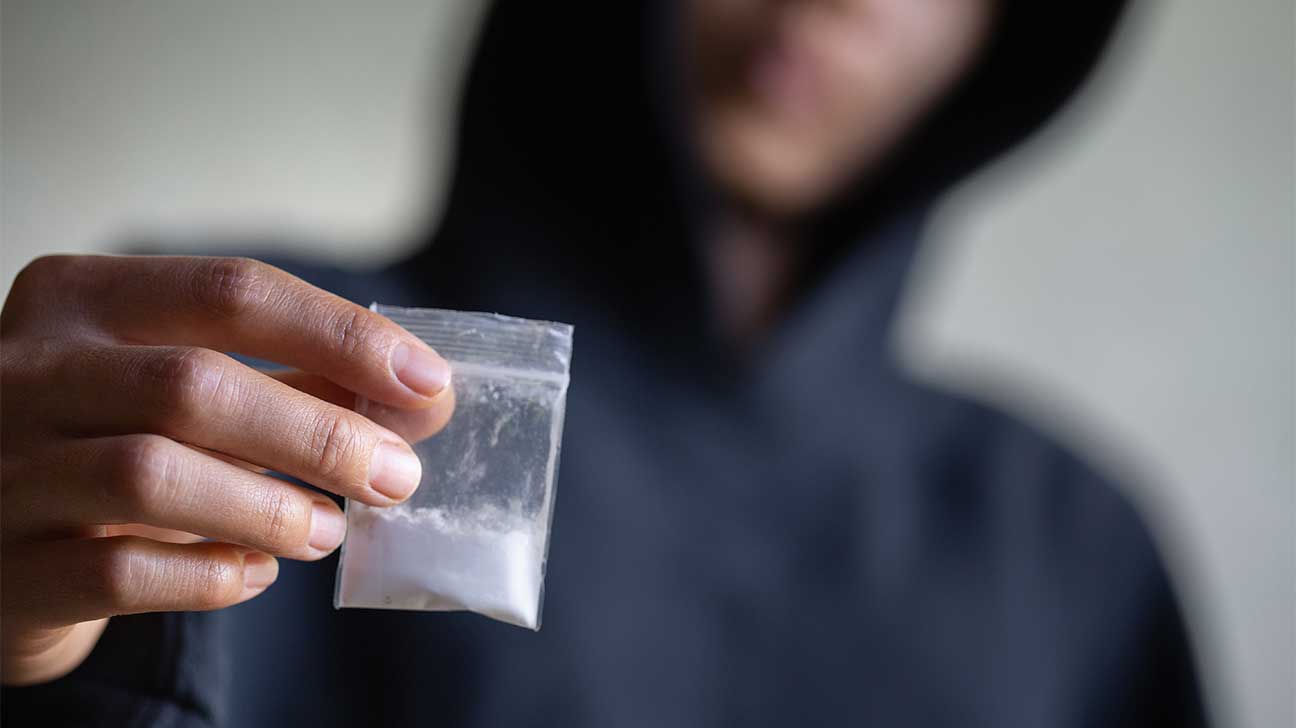
Cocaine is a powerful stimulant drug derived from the leaves of the coca plant native to South America. As an illicit street drug, cocaine typically comes in the form of a white powder and is snorted (insufflated) for its euphoric, energizing effects.
When someone suddenly stops using cocaine after months or years of abuse, they will likely go through a period of withdrawal, which may include physical and mental discomfort for days or even weeks.
Under the supervision of medical professionals at a treatment center, cocaine detox can be a far more comfortable experience with a lower chance of serious side effects or health complications.
Causes Of Cocaine Withdrawal
People who have become physically dependent on cocaine use have typically been abusing the drug over a long period and are mostly reliant on it to function in their lives.
Due to the way cocaine impacts dopamine neurotransmitters in the brain, withdrawal will occur if a person abruptly stops using it after becoming physically dependent.
Cocaine Withdrawal Symptoms
Withdrawal from cocaine drug abuse can begin within hours and may include a range of psychological and physical symptoms.
Common stimulant withdrawal symptoms include:
- sweating
- shaking
- nausea
- headache
- vomiting
- intense cravings
- irritability
- suicidal thoughts
- anxiety
- depression
- hallucinations
- seizures
The severity of withdrawal symptoms will vary based on how long a person has been using cocaine, the amount of cocaine used, whether it was being ingested with other substances, and other factors.
Cocaine Withdrawal Timeline
The timeline of cocaine withdrawal depends on variables such as co-occurring disorders, frequency of use, and a person’s overall health.
Early Withdrawal (First 24 Hours)
Initial symptoms begin within hours of last use. These symptoms may include fatigue, irritability, and anxiety.
Acute Withdrawal (24-72 Hours Since Last Use)
This is the most intense period of withdrawal. During the acute phase, people may experience increased cravings, poor concentration, tremors, restlessness, pain, and vivid nightmares.
Four To Seven Days
After approximately a week, most people will start to feel much better, with minimal cocaine cravings. However, withdrawal symptoms may return without warning.
How Cocaine Detox Programs Work
When a person enters a cocaine detox facility, they will first be assessed to create a treatment plan, determine the severity of their substance abuse, and document any physical or mental health concerns.
Once the assessment is complete, clients will be checked into a room where they will remain under medical supervision for the duration of their stay. This allows for the safe management of any severe symptoms.
In some cases, behavioral therapies such as cognitive behavioral therapy (CBT) or counseling will be administered during detox to begin to address the underlying reasons for drug use.
While there are currently no FDA-approved medications used to manage stimulant withdrawal, recent research has suggested that drugs such as modafinil may prove to be effective during cocaine detox.
Healthcare providers may offer other types of medications to relieve headaches, muscle aches, and sleeplessness.
When the client has fully stabilized from the effects of cocaine withdrawal, they will likely be transferred into a residential or outpatient treatment program to continue their recovery journey.
Treatment Programs For Cocaine Addiction
Cocaine addiction treatment after medical detox is essential for the prospect of long-term sobriety. In a drug rehab program, clients will be encouraged to talk about their personal history of addiction, their relationships, and other factors that may motivate substance abuse.
Below are some of the levels of care and treatment services you or a loved one may encounter at a recovery center.
Treatment options may include:
- support groups for opioid or cocaine abuse
- inpatient rehab programs
- intensive outpatient programs (IOP)
- relapse prevention
- aftercare
- dual diagnosis treatment
- outpatient rehab programs
- long-term residential treatment
- dialectical behavior therapy (DBT)
- 12-step programs such as Narcotics Anonymous (NA)
Receiving proper care at a treatment facility is the most effective way to help people avoid relapse and a potentially life-threatening overdose.
Find Substance Use Disorder Treatment Today
Get help today by reaching out to DetoxRehabs.net. Our team can help you get on the path to a drug-free life.
Article Sources- National Institute on Drug Abuse (NIDA) — Cocaine DrugFacts
https://nida.nih.gov/publications/drugfacts/cocaine - National Institute of Health (NIH) — New Medications for the Treatment of Cocaine Dependence
https://www.ncbi.nlm.nih.gov/pmc/articles/PMC2994240/ - Substance Abuse and Mental Health Services Administration (SAMHSA) — Medications for Substance Use Disorders
https://www.samhsa.gov/medications-substance-use-disorders


